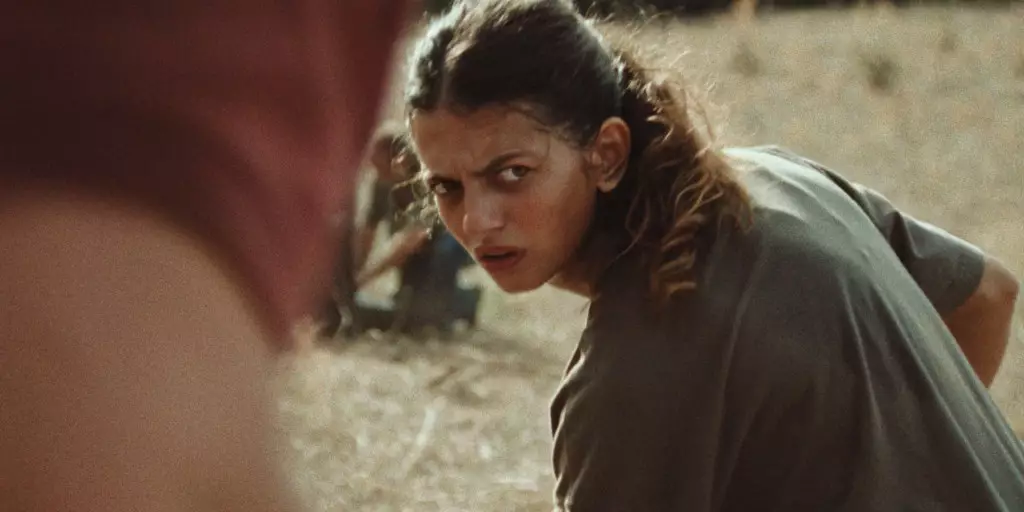As Lesia grapples with the haunting question of why someone would want to kill her, the intricate tale of “The Kingdom” delves into the dark underbelly of Corsican crime families in the ’90s. Set against the backdrop of a fragile peace shattered by a car bomb targeting the president, the narrative unfolds with a primal intensity that grips the audience from the very beginning. The omnipresent threat of violence and retribution permeates every scene, laying bare the harsh reality of a world where fear is the air they breathe, and survival hinges on staying one step ahead of death.
At the heart of the story lies the poignant relationship between Lesia and her father, Pierre-Paul, a seasoned member of the Corsican crime syndicate. Their bond, fraught with unspoken truths and unfulfilled longing, serves as a poignant narrative thread that weaves together themes of love, sacrifice, and inevitability. Lesia’s yearning for a normal family life, juxtaposed against the brutal demands of her father’s profession, highlights the pervasive sense of tragedy that underpins their existence. Through their interactions, the audience is drawn into a world where familial ties are tested, and loyalties are forged in blood.
One of the key strengths of “The Kingdom” lies in its commitment to authenticity, both in its storytelling and character portrayals. Director Julien Colonna’s personal connection to Corsica infuses the film with a sense of lived experience, grounding the narrative in a visceral reality that resonates deeply with audiences. By casting non-actors who embody the spirit of the Corsican landscape and dialect, Colonna elevates the film beyond mere drama, immersing viewers in a world where every glance and gesture speaks volumes about the characters’ inner struggles and desires.
While the subject matter of organized crime may seem bleak and foreboding, “The Kingdom” surprises audiences with its visual splendor and artistic sensibility. The lush Corsican countryside, bathed in golden sunlight and cloaked in shadows, serves as a striking backdrop for the unfolding drama. Colonna’s decision to embrace the beauty of the landscape, even in the midst of violence and turmoil, adds a layer of complexity to the film, underscoring the paradoxical nature of Corsican society where brutality and beauty coexist in uneasy harmony.
As the story of Lesia and her father unfolds, themes of tragedy and fate loom large, casting a shadow over their tumultuous journey. The inevitability of their circumstances, shaped by forces beyond their control, lends a sense of fatalism to their actions and choices. Lesia’s unwavering loyalty to her father, despite the dangers and uncertainties that surround them, underscores the deep-seated bond between them, transcending the boundaries of ordinary family ties. In the end, “The Kingdom” emerges not just as a crime drama but as a timeless tale of love, loss, and the inescapable grip of destiny.
“The Kingdom” offers a riveting exploration of the interplay between crime and family, set against the rugged backdrop of Corsica’s criminal underworld. Through its authentic portrayal of a daughter’s unwavering devotion to her father and the harsh realities of life within a crime syndicate, the film draws viewers into a world where loyalty and betrayal walk hand in hand. With its visually stunning cinematography, compelling performances, and poignant themes, “The Kingdom” stands as a powerful testament to the enduring impact of familial bonds and the inescapable pull of fate.

Leave a Reply